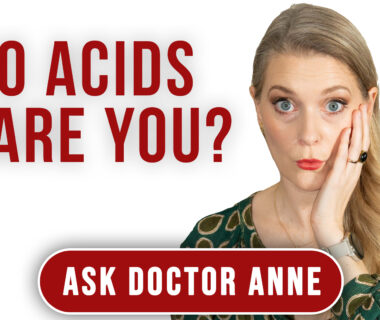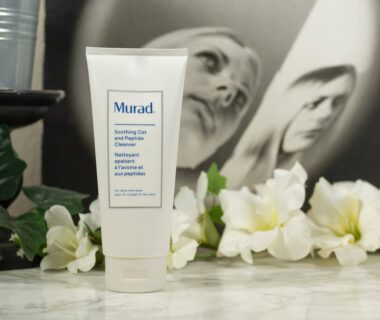ADVERTISEMENT INFO: THIS BLOG POST USES AFFILIATE LINKS. I RECEIVED NO MONEY TO WRITE IT. PLEASE READ DISCLAIMER.
So you are pregnant? Congrats! I bet you are excited and at least a little bit overwhelmed by all the things you have to think about now. Like, what skincare is safe to use during pregnancy? Which ingredients should better be avoided? And why on earth is your skin freaking out?
We will talk about all that in today’s post.
After all, the tiny human growing is – literally – attached to you and feeding off you. Whatever you consume, they get their share. I realize I make it sound like Ridley Scott’s Alien, please don’t let me put you off here, being pregnant is great! But you do have a certain responsibility now that you did not have before.
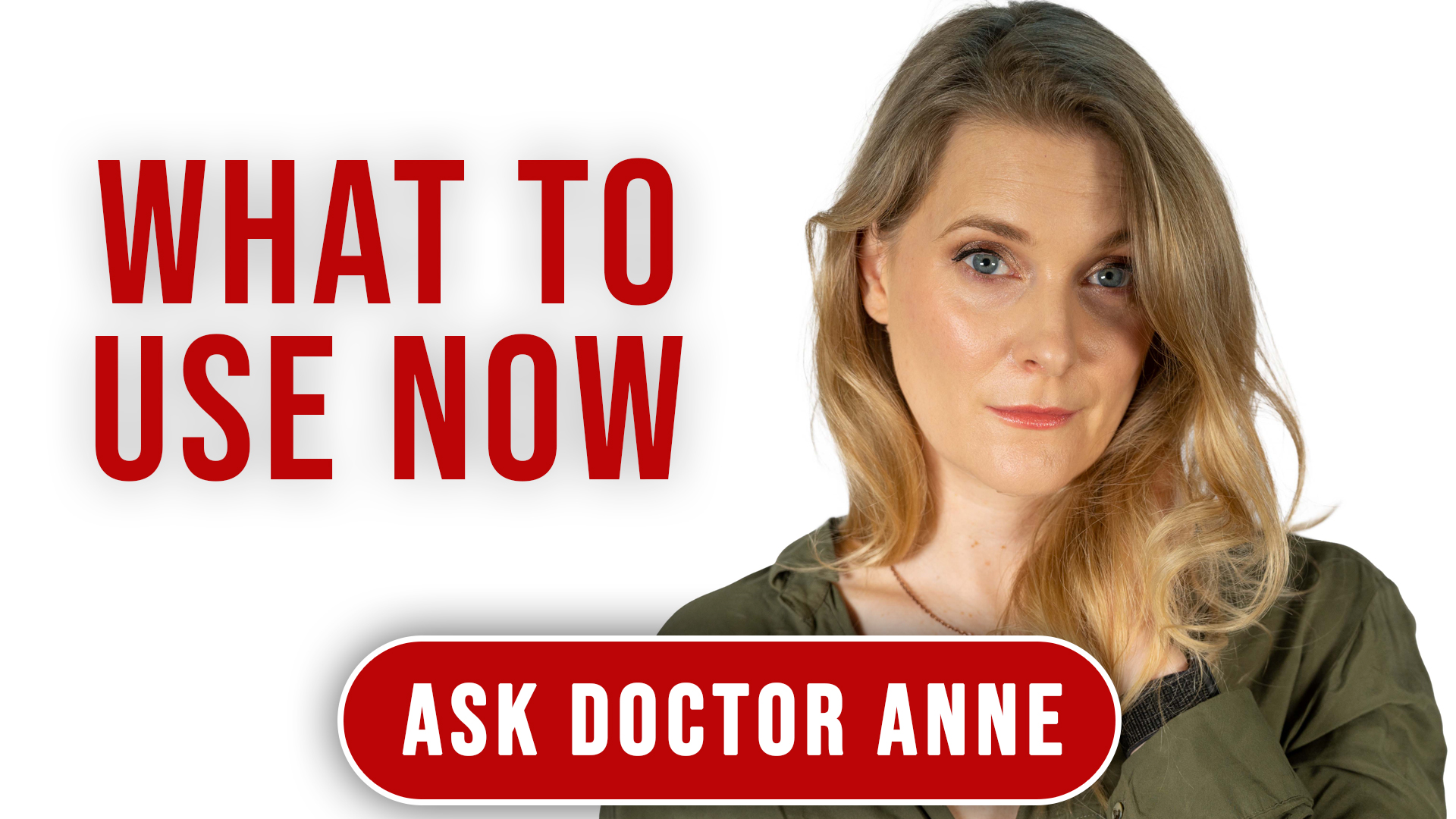
Now I say that all the time, but it is especially important here: This is general advice, you should always, always! talk to your individual obstetrician or midwife in order to learn what is right for your individual pregnancy. No two people are the same, no two pregnancies are the same, you need to get advice that takes into consideration your individual situation.
And don’t stop at your obstetrician, go see a dermatologist as well if your skin is giving you troubles, there are quite a few things they can offer that are prescription, but safe to use and that you don’t get at the drugstore.
That is especially true if you suffer from acne – because that can get really bad during this time.
Which changes happen in pregnant skin?
Acne during pregnancy
Pregnancy is a time where your hormones are all over the place and that, what else is new, majorly affects your skin. For some that might mean they get that famous pregnancy glow – if that is you, great – but for at least half of the pregnant population either existing acne worsens or appears for the first time. The reason for that is the increase in Progesterone – it stimulates your sebaceous glands that depending on your individual constitution either translates to a dewy glow or happens to be the missing part needed for acne breakouts.
I for one looked like I had when I was 14 – covered in pimples and cystic spots and that during a time when many acne treatments like retinoids are not considered safe. There are options though like Azelaic Acid, Niacinamide and Light Therapy, best here is to consult a dermatologist.
Hyperpigmentation and melasma during pregnancy
Another major issue pregnant people face is melasma, the so-called mask of pregnancy, a symmetrical hyperpigmentation that often appears on the forehead, around the mouth or on the cheeks. It is also hormone related and is best prevented with sun smart behavior and diligent sunscreen application. I talk more about it in my series on hyperpigmentation here, but if you suffer from it it might comfort you that it often fades on its own once the hormone surge caused by being pregnant is over. Your hormones make you more prone to hyperpigmentation all over the body, which is why you can see the so-called “linea nigra” appear on your belly (especially in darker skin tones) or notice darkening on your thighs, underarms or other places. (More info: Different kinds of hyperpigmentation)
Stretchmarks during pregnancy
Not so much on the face, but more a problem of your stomach, breasts, butt and thighs are stretchmarks. And to be honest, there isn’t much you can do here in terms of topicals – it is more genetics and the size of your baby/ amount of weight you gain that has an influence and not the creams and lotions you can purchase for that.
Dry skin during pregnancy
Last but definitely not least is a tendency to dry, itchy skin, especially in the parts of your body where the skin gets stretched – I sometimes felt as if my belly was covered in ants. This is part due to the stretching, part due to the necessary changes your immune system goes through – it gets a little more forgiving towards foreign bodies like the one inside your womb. Slather yourself in whatever rich moisturizer you have at hand and do it repeatedly, that will help ease the itch.
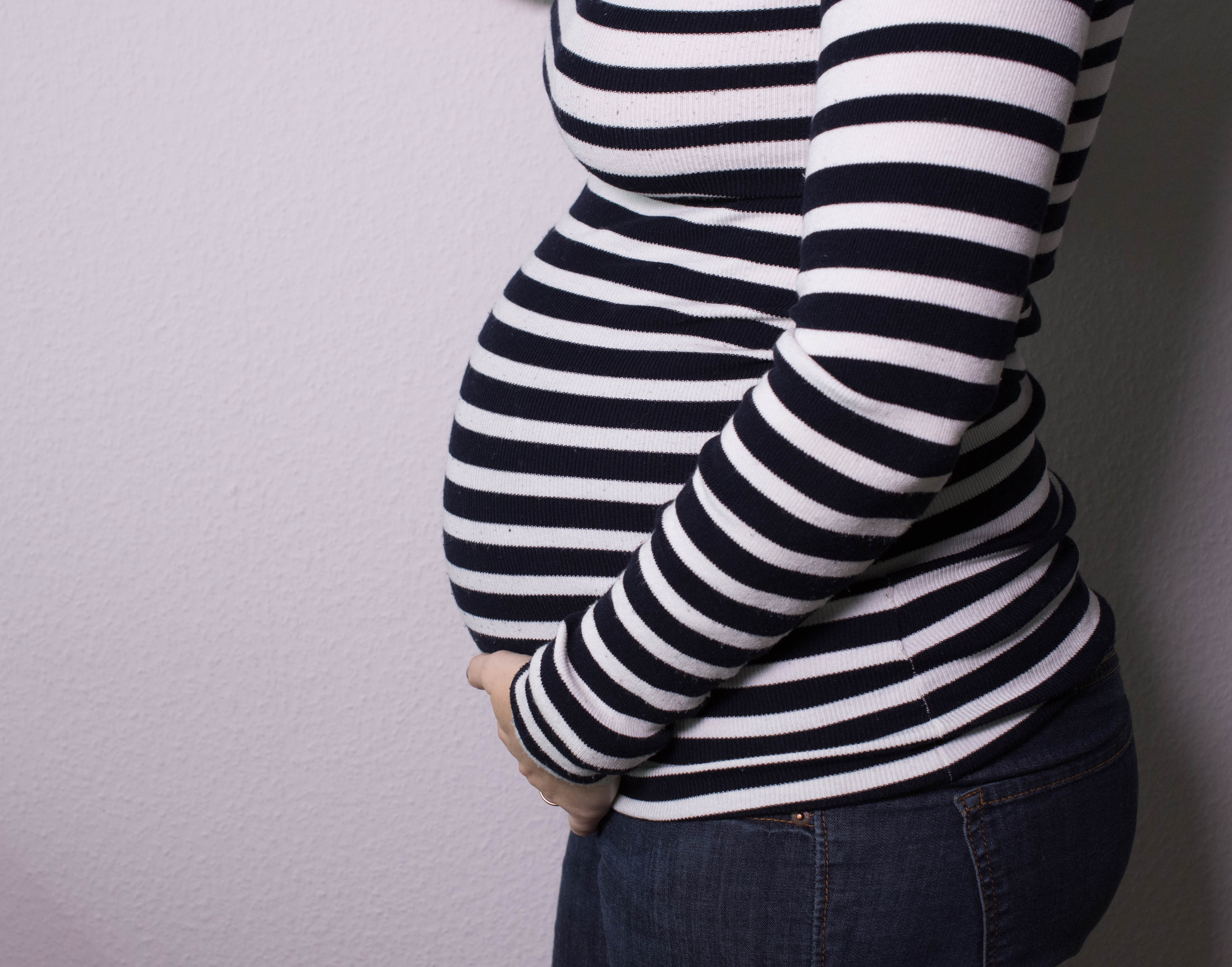
Ingredients that are safe to use in pregnancy
Azelaic Acid
I already touched briefly on it, but it is an ingredient that many people don’t really know about. It is antiinflammatory, antibacterial and works against hyperpigmentation, so it can be used for acne, melasma and general redness when most other ingredients can´t. The Ordinary have a 10% Azelaic Acid Suspension, Paula’s Choice do a 10% Azelaic Acid Booster as well, but if you want to use it due to acne, your dermatologist might offer a prescription.
Alpha Hydroxy Acids
Commonly referred to as AHA. This family includes Glycolic, Lactic and Mandelic Acid, all of which are safe to use during pregnancy and help in reducing texture, increasing the glow, and lift off hyperpigmentation for a more even skin tone. I would not go in with the strongest versions available, but with a lower concentration used more frequently, to avoid damaging your skin barrier. The famous pixi Glow Tonic comes to mind (here is my review), but there are several brands offering their own version now.
Niacinamide
One of my favorite ingredients (I talk in depth about it here) and again one that will help reduce inflammation due to acne, strengthen the skin barrier and help against hyperpigmentation. I enjoy the one by The Ordinary that comes with added Zinc, also anti inflammatory and safe to use in pregnancy, but there are numerous options out there as Niacinamide is a very common ingredient.
Vitamin C
An antioxidant, great against hyperpigmentation and helping in collagen production (more info on it here). And yes, before you ask, the other antioxidants like Vitamin E or Q10 are also safe, I just like to single out Vitamin C because it has the previously mentioned added benefits on top. My favorite Vitamin C Serum is the Geek & Gorgeous C-Glow Serum (full review), but again there are multiple options.
Sunscreen
Yes, this is considered skincare and as always it is one of the most important steps to keep your skin happy and healthy. No matter what you will hear online, ALL forms of sunscreen are safe, so don’t get hung up on chemical vs mineral vs physical. Find one that works for you and that you will wear and you are golden. My current favorites are the Heliocare 360° Water Gel (Review), the Ultraviolette Supreme Screen Hydrating Facial Skinscreen (Review) and the Biore UV Aqua Rich Watery Essence (Review).
Tranexamic Acid
Is a little controversial, but in general is considered safe (more info about it here). There is not a lot of data though, so if in doubt ask your obstetrician.
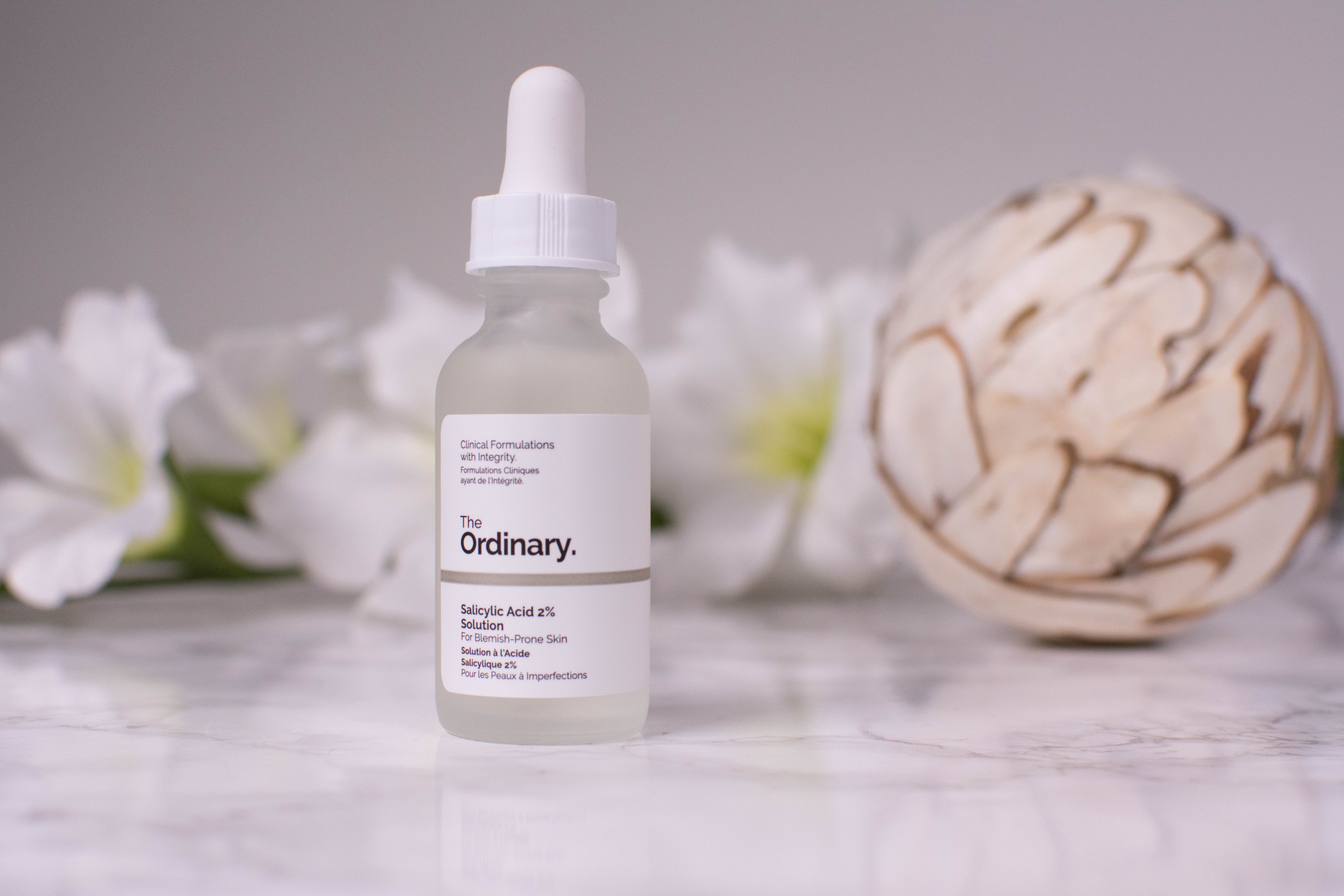
Is Salicylic Acid safe to use in pregnancy?
Now you probably realized that I mentioned AHAs exclusively and did not recommend Salicylic Acid despite its great success in treating skin congestion and breakouts. The reason for that is that there is conflicting information on the safety and that you might hear online or from your obstetrician that it should be avoided while others tell you that it is perfectly fine.
Let me break it down for you: Salicylic Acid ingested in high doses can lead to Salicylism, a state associated with neurological symptoms, respiratory alkalosis and multiple organ failure. It was extrapolated that, if the mother either ingests or absorbs high doses that this can pass the placenta and lead to Salicylism in the unborn.
That is a theoretical construct though, and even after oral ingestion of high doses of Salicylic Acid with intoxication of the mother, Salicylism in the unborn has rarely been reported.
Another concern is that Salicylic Acid might increase the risk of bleeding during delivery, which is why it should be restricted in the third trimester, and that it could lead to reduced infant birth weight in theory – none of these effects have been found to actually take place when looking at mothers that, for whichever reason, did ingest Salicylic Acid during their pregnancy.
On the contrary many women, me included, are put on low dose oral salicylic acid to prevent preeclampsia in the first trimester. Well, in my case it was because I went to do high altitude mountain climbing six weeks pregnant, not to prevent preeclampsia, but the key is:
The amount that reaches the unborn when you ingest something is much higher than the amount that is absorbed through the skin – the skin is a barrier after all, and that doesn’t suddenly stop simply because you are pregnant.
Now what is my point here? I don’t think that Salicylic Acid needs to be avoided during pregnancy, especially if you opt for washes rather than leave-on products, but do discuss your individual decision with your obstetrician or simply opt for one of the other ingredients deemed safe.
And how about Benzoyl Peroxide – is that one safe to use in pregnancy?
Yet another one that you will hear different things about, and the reason for it is that, as always, the dose makes the poison. Benzoyl Peroxide comes in many different concentrations and different formulations, ranging from leave on products to face washes. It will of course make a difference if something stays on your skin for a long time, maybe even covers a huge surface area, as for example a body treatment would, or if something is used as spot treatment or wash-off.
Low concentrations (up to 5%) and spot treatments or face washes are generally considered safe, while everything else should be used under professional guidance.
Ingredients to avoid during pregnancy
Now onto the ingredients that are usually recommended to be avoided during pregnancy. Please note that none of the ones listed used unknowingly are a reason to terminate a pregnancy, I will go into the why a little later, it is more the repeated and frequent use that might be a concern. So please, if you just found out you are pregnant, but have been using your acne topicals, don’t freak out – you and the baby will be fine.
Retinoids
Oral Vitamin A derivatives are known to cause birth defects, which is why you need to use a safe form of birth control if you decide to undergo a treatment course. This warning was extended to topical forms of retinoids, both prescription as in Adapalene, Tretinoin and Tazarotene and non-prescription as in Retinol and Retinal. (You can learn more about the difference here)
Oral Tetracycline
Tetracycline is a broad spectrum antibiotic used to treat severe cases of acne that can hinder bone growth and permanently stain developing teeth yellow, which is why it should not be used during pregnancy and in small children. Topical antibiotics on the other hand are considered fine.
Oral Spironolactone
Not technically a topical, but acne-treatment, so I figured I would mention it here in case you were curious
Hydroquinone
Not used for acne, but to treat hyperpigmentation, has a pretty high absorption rate compared to other topicals, which is why using it is not recommended during pregnancy
Invasive procedures like Botox and fillers – Botox is a neurotoxin, and while it is only used in the smallest quantities, injecting it into the body is not the greatest idea during pregnancy. Same goes for other fillers, as even though they are not neurotoxins on their own, there is a small risk for infections or other complications that should be avoided.
How much data is there on skincare safety during pregnancy
The thing you need to be aware of when talking about skincare in pregnancy is that pregnant women are not a very well studied population for that. The medical principle “primum non nocere”, translated to “first, do no harm”, means that if you are pregnant, you are excluded from most studies. Which in turn means that most skincare ingredients have not been tested for how they affect a pregnancy, and if you don’t know… well, you don’t take any chances with the unborn either.
So if there is a theoretical chance of it doing harm, for example with retinoids where we know that oral ingestions does cause harm, we extrapolate that to the whole group even though we know that the absorption rate is so low, they most likely have no effect.
A similar thing is the warning against Hydroquinone – we know that it has a high absorption rate, but that on its own doesn’t mean a thing. Having something in your bloodstream does not necessarily cause negative effects. But would you offer your unborn to find out? I wouldn´t, which is why there is barely any data.
The key point here is:
When it comes to pregnancy skincare, recommendations are extremely cautious. For most of the ingredients mentioned here as “not safe to use”, there is no proof of harm for the unborn. So should you, for whatever reason, have realized late that you are pregnant and kept using your regular skincare, there is absolutely no reason to worry. Talk to your obstetrician and focus on the million other things to worry about when expecting a baby – trust me, there are more than enough.
But I will miss my actives and procedures!
As someone that struggled with acne for most of her life, the thought of having to stop my tried and true skincare during pregnancy was not a pleasant one. Ten months, maybe longer when you count in breastfeeding, sounded like an eternity, especially when it is ingrained in us that “prevention is key” and that consistency leads to great skin.
That might be even more true if you have been regularly getting botox or fillers for a long time and can’t picture yourself without it.
I absolutely get that, but I assure, given your whole life, your pregnancy is but a small part of the time you can dedicate to your skin, and a ton of options are still available to you, like first and foremost your sunscreen, but also Vitamin C and AHAs.
You will not suddenly age by ten years because you stop your retinoids, your wrinkles will not triple in depth because you miss three rounds of Botox. Chances are, you will not notice much change at all other than the ones through water retention, weight gain and later lack of sleep.
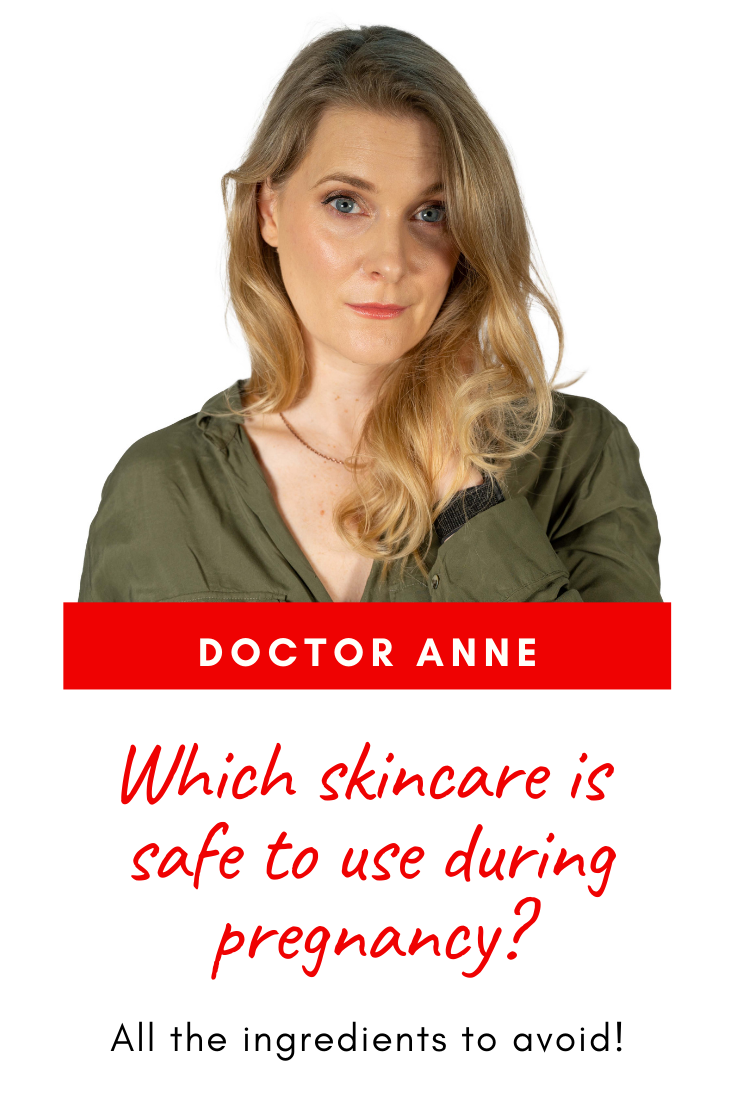
Shop the post
And if you want to get a vote in the next Ask Doctor Anne Topic, Ingredient Spotlight or product I review, don’t forget you can head over to my Patreon account to get more involved!
